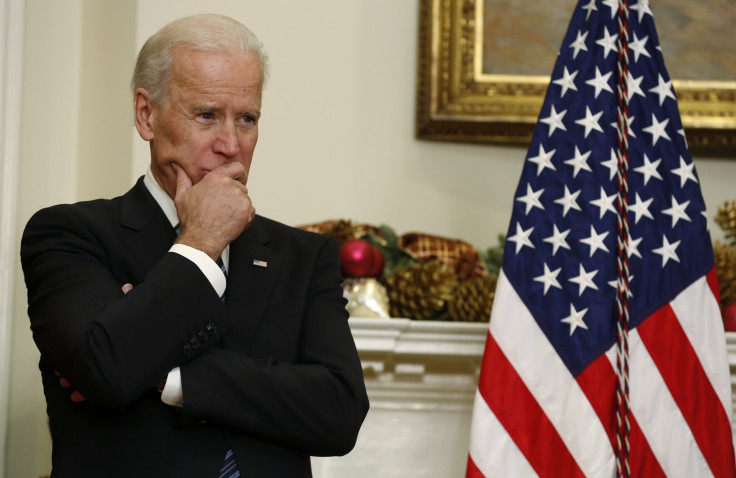Biden To Reassure Japan, Calm US-China Tensions Over Air Defense Zone Row During East Asia Trip

Vice President Joe Biden has embarked on a visit to Japan, China and South Korea this week, at a time when tensions are running high in the region after China established an air defense identification zone, or ADIZ, on Nov. 23 over the East China Sea, covering a set of islands also claimed by Japan.
The U.S., which has expressed “deep concern” over the ADIZ, has also voiced support for its ally, Japan, in the geopolitical row, with Defense Secretary Chuck Hagel reiterating Washington’s policy that the mutual defense treaty between the U.S. and Japan applies to the East China Sea’s disputed set of islands.
“The U.S. government has made it clear that it is deeply concerned about China's establishment of the air defense identification zone, and that it will not accept China’s demands regarding operations in the zone,” Japanese Chief Cabinet Secretary Yoshihide Suga told a news conference, Reuters reported.
In Tokyo, Biden’s first stop during the trip, the vice president is expected to convey Washington’s messages supporting Japan over the past week, but it is seen as vital that he attempts to cool recent tensions between Washington and Beijing over the ADIZ. The vice president is also expected to push for an agreement with Japan on an ambitious Trans Pacific Partnership trade pact involving 10 other nations.
“It's especially important ... that we continue to amplify our messages that we are and always will be there for our allies, and that there is a way for two major powers in the U.S. and China to build a different kind of relationship for the 21st century,” a senior Obama administration official told Reuters.
The Pentagon, which said that U.S. military operations “will not in any way change” as a result of China’s announcement, sent two unarmed B-52 bombers into the ADIZ on Monday, as part of a previously-planned training program, without notifying Chinese authorities, as the latter has required after designating the ADIZ.
However, the State Department asked civilian U.S. aircraft to notify Chinese authorities before entering the protected zone, but asserted that the advisory does not mean the U.S. government has accepted China’s assertion of its power over the East China Sea.
Washington does not formally take sides in the territorial dispute involving the disputed islands, known as Senkaku in Japan and Diaoyu in China, but it acknowledges that Tokyo has administrative control over the islands.
© Copyright IBTimes 2024. All rights reserved.






















